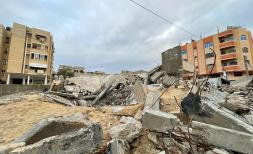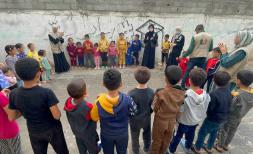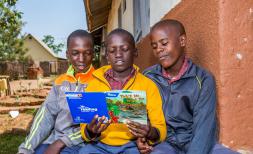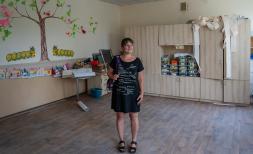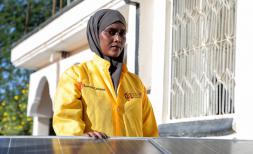It's never too late to learn: Accelerated learning classes for displaced children in Mali
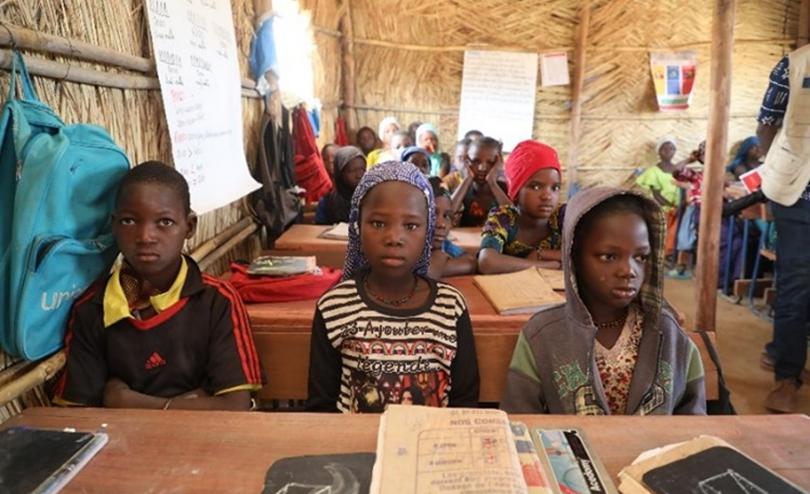
Children in the accelerated learning class/ Photo credit: Ali Thienou
I am on my first visit back in Mali since 2019 and first time back in Mopti since 2015. It is 40 degrees Celsius in the accelerated learning classroom[1]. I am visiting this morning, and I am put on the bench next to children aged 8-10 years old from the nearby camp for internally displaced people. They have fled Bankass in central Mali, with their families and come close to Mopti, where they attend a school hosting children from the village next to the school and internally displaced people's (IDP) camp.
The displaced children have lost several months of education due to their villages of origin being attacked by non-state armed groups and having to flee with their families to this new temporary location.
The accelerated learning class Save the Children set up is helping them catch up on their lost education. I am impressed by the enthusiasm of the children I have met in the class who are very keen on catching up on the education lost due to their displacement.
The teachers are also very energetic and committed to teaching the children new skills. The parents I spoke to express that education is as important to them as it is for their children. The village chief even started dancing in front of me to express his joy and happiness about the education support being provided by Save the Children and our Malian partners Action Mopti and CAEB.
In Mopti, Save the Children has also taken a good child rights approach to the communities. Apart from the successful accelerated learning programme, we also intervened to make the school green and engage the children – both host community and IDPs - in coming up with a plan for mitigating climatic and environmental hazards.
This was evident by the trees planted in the school compound providing shade during this unusually hot season and fencing off parts of the school to prevent animals from entering and defecating in the school compound. Plans exist to fence of the school entirely and work on waste disposal. This intervention enables children to understand and appreciate what they themselves can do to improve their situation considering harsh climatic conditions and environmental hazards.
Furthermore, Save the Children has installed solar driven lampposts in the IDP camp to provide light at night. This intervention is important to protect children from abuse and violence during the dark hours.

Solar energy systems set up and trees planted in the school by Save the children/ Photo credit: Ali Thienou
Education is a right for all children. However, as I have just witnessed during my visit, not all children are able to have their right to education fulfilled at all times. This is why funding education projects continues to be so important in Mali and other countries where children are denied of education.
-----
Save the Children has been operating in Mali for over three decades. We work with children, local communities, civil society organizations and host government to provide long-term solutions to both emergency and developmental issues affecting children, women and men in vulnerable and hard to reach areas including Mopti. Save the Children implements myriad activities in such diverse sectoral focuses as education, food security, child protection, health and nutrition.
[1] learning format that allows children affected by conflict who do not attend school to complete courses in a shorter period of time before finding their way back to the normal system
